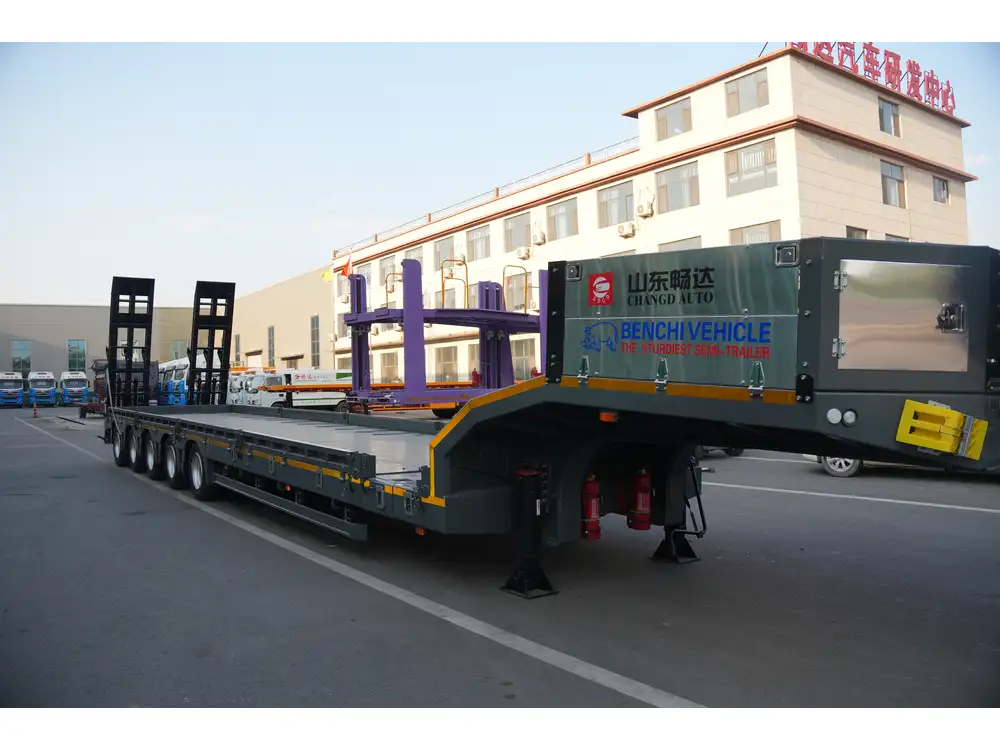When considering the acquisition of a tanker trailer, understanding its cost involves more than just the sticker price. Tanker trailers serve critical functions in industries ranging from oil and gas to food and beverage, making their pricing structure influenced by various factors. This guide delves into the intricacies of tanker trailer costs, providing insights that can aid potential buyers in making informed decisions.
Factors Influencing Tanker Trailer Costs
1. Type of Tanker Trailer
The type of tanker trailer significantly impacts the cost. Various models are designed to transport different kinds of liquids, each with unique specifications and materials. Below is a comparative overview of some common tanker types:
| Type of Tanker | Description | Estimated Cost Range | Key Considerations |
|---|---|---|---|
| Petroleum Tankers | Built for transporting crude oil, gasoline, and other petroleum products. | $40,000 – $100,000+ | Requires special coatings to prevent corrosion. |
| Chemical Tankers | Designed to carry hazardous chemicals; often lined with specialty materials. | $50,000 – $150,000+ | Compliance with rigorous safety standards is crucial. |
| Food Grade Tankers | Used for transporting edible liquids like milk or syrup; constructed from stainless steel. | $60,000 – $120,000+ | Must meet FDA regulations and sanitation standards. |
| Water Tankers | Typically used for firefighting or irrigation; can be built from various materials. | $30,000 – $70,000+ | Cost-effectiveness for municipal and agricultural uses. |

2. Material Quality
The material used in the construction of tanker trailers can drastically alter their cost. Factors include:
- Aluminum vs. Steel: Aluminum is lighter and offers better corrosion resistance, while steel is more durable.
- Coatings and Linings: Specialty coatings (like Epoxy or Polyurethane) enhance lifespan but add to initial costs.
Higher-quality materials typically increase upfront costs but can lead to reduced maintenance expenses and a longer lifespan.
3. Capacity and Size
Tanker trailers come in various capacities, typically measured in gallons or liters. The cost generally rises with an increase in size; however, buyers must also consider the legal weight limits and dimensions for different states and regions. A larger tanker trailer will cost more due to:
- Additional materials required for construction.
- Increased regulatory compliances (especially for transporting hazardous materials).
4. Customization and Features
Customization options can lead to significant price variations. Common options include:
- Pneumatic systems for easy unloading.
- Multi-compartment designs for transporting different products simultaneously.
- Heating systems for products that require temperature control (e.g., certain chemicals).
Each of these features adds to the complexity and the cost of the trailer.

5. Brand Reputation and Manufacturer
The manufacturer’s reputation can influence the costs substantially. Established brands may charge a premium for their products due to:
- Proven reliability and performance.
- Superior customer service and warranty coverage.
Conversely, lesser-known manufacturers might offer lower base prices but could lack essential after-sales support or quality assurances.
6. New vs. Used Tanker Trailers
A crucial decision in tanker trailer purchasing is whether to buy new or used:
- New Trailers: Typically come with warranties and modern features but require a larger budget. Starting prices can range from $40,000 to over $150,000 depending on specifications.
- Used Trailers: They can be significantly cheaper (often between $20,000 and $70,000), but buyers must thoroughly inspect used trailers. Hidden costs may arise from potential repairs, refurbishments, or lower efficiency.
7. Geographic Location
The purchase price may also be influenced by geographic location. Different regions have varying demand levels, transportation costs, and market saturation, which can lead to fluctuations in the overall cost of tanker trailers.

Understanding Operating Costs
Beyond the initial purchase price, it’s essential to consider the recurring operating costs associated with tanker trailers:
1. Maintenance and Repairs
Routine maintenance is critical to ensuring longevity and safety. Expected costs may include:
- Annual inspections: Required for compliance with safety standards.
- Regular upkeep: Includes checks on brakes, lights, tires, and tank integrity.
- Repairs: Costs depend heavily on the extent of damage; it can range from a few hundred dollars to thousands, depending on the severity.
2. Insurance
Insurance costs can vary based on the type of fluid being transported, region, and the driving record of the vehicle operator. Generally, annual insurance premiums for tanker trailers can range from $2,000 to $10,000, depending on these factors.

3. Fuel Costs
Given that tanker trailers are often used for long-distance transport, fuel costs represent a significant ongoing expenditure. Efficiency varies greatly based on the weight being hauled, the trailer’s aerodynamics, and the truck’s design.
4. Licensing and Permits
Depending on the type of material transported, acquiring the necessary licenses and permits can introduce additional expenses. For example, transporting hazardous materials requires special permits and adherence to strict regulations, which may lead to increased overhead costs.
Conclusion: Making the Right Investment
Purchasing a tanker trailer involves various factors, each playing a crucial role in determining the overall cost. Here’s a quick recap of considerations for potential buyers:
- Identify the specific needs: Consider the materials to be transported and choose a trailer type accordingly.
- Assess the material quality: Balance upfront costs against potential long-term savings from durability.
- Factor in customization needs and the potential for operational expenses in maintenance, insurance, and fuel.
- Weigh the benefits of new versus used options, ensuring thorough inspections of pre-owned trailers.
In essence, understanding how much a tanker trailer costs extends beyond the initial outlay; it encompasses maintenance, operation, and compliance considerations, ultimately ensuring that your investment yields substantial returns over time. With informed decision-making, selecting the appropriate tanker trailer can enhance operational efficiency, lead to better service delivery, and streamline your logistical ventures, making it a pivotal component of your business strategy.



